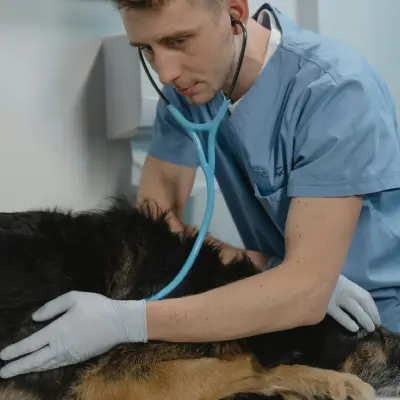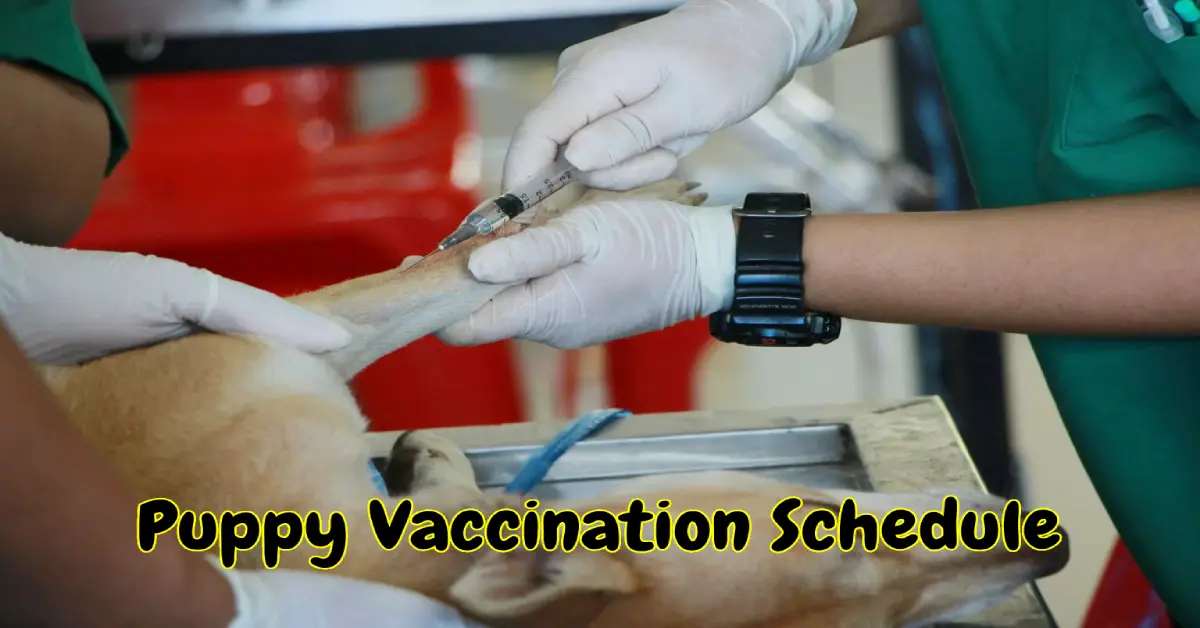Welcoming a new puppy into your home is an exciting journey filled with cuddles and playtime, but it also comes with the responsibility of ensuring their health. A critical part of puppy care is following a puppy vaccination schedule to protect your furry friend from dangerous diseases.
This comprehensive guide explains how to ensure your puppy gets the right vaccinations at the right time, covering core vaccines for puppies, non-core vaccines for dogs, costs, and expert puppy health tips to keep your pet thriving.
Backed by veterinary insights and aligned with the latest pet care standards, this article will help you navigate the world of dog vaccinations with confidence.
Why Puppy Vaccinations Are Essential
Vaccinations are a cornerstone of canine health, shielding your puppy from life-threatening diseases. By following a veterinary vaccination schedule, you bolster your puppy’s immune system, ensuring they grow into a healthy adult dog. Skipping or delaying puppy shots can expose your pet to risks like parvovirus or rabies, which can be fatal or costly to treat.
How Vaccines Protect Your Puppy
Vaccines work by introducing a safe version of a disease-causing pathogen, training your puppy’s immune system to recognize and fight it. This immunization process is vital for disease prevention, particularly for highly contagious conditions like canine distemper or parvovirus. According to the American Veterinary Medical Association (AVMA), timely vaccinations reduce the risk of outbreaks and protect both individual pets and the broader canine community.
Risks of Skipping Vaccinations
Failing to vaccinate your puppy can lead to severe health issues. For example, parvovirus can cause vomiting, diarrhea, and death in unvaccinated puppies, with a mortality rate as high as 90% in untreated cases. Rabies, a zoonotic disease, is not only fatal but also a public health concern, making rabies vaccination for puppies legally mandatory in many regions. Neglecting puppy vaccines also increases vet costs and emotional stress for pet owners.
Core Vaccines Every Puppy Needs

Core vaccines for puppies are essential for all dogs, regardless of lifestyle or location, due to the widespread risk of the diseases they prevent. Below are the primary puppy shots every pet owner should prioritize.
Canine Distemper Vaccine
The canine distemper vaccine protects against a highly contagious virus that affects a puppy’s respiratory, gastrointestinal, and nervous systems. Symptoms include fever, coughing, and seizures, with a high mortality rate. This vaccine is typically administered starting at 6–8 weeks of age.
Parvovirus Vaccine
Parvovirus prevention is critical, as this virus spreads through contact with contaminated surfaces or feces. The parvovirus vaccine is a core component of the puppy immunization timeline, protecting against severe dehydration and organ damage. Puppies are particularly vulnerable due to their developing immune systems.
Adenovirus (Canine Hepatitis) Vaccine
The adenovirus vaccine guards against canine hepatitis, which affects the liver and can lead to organ failure. It’s included in combination shots (e.g., DHPP) to streamline the puppy vaccination schedule.
Rabies Vaccine
Rabies vaccination for puppies is non-negotiable, as rabies is a deadly virus transmissible to humans and other animals. Most states require puppies to receive their first rabies shot by 16 weeks, with boosters every 1–3 years depending on local laws.
Non-Core Vaccines: When Are They Needed?
Non-core vaccines for dogs are recommended based on your puppy’s lifestyle, location, and exposure risks. Consult your veterinarian to determine which of these inoculations are necessary.
Bordetella (Kennel Cough) Vaccine
The Bordetella vaccine protects against kennel cough, a respiratory infection common in dogs that board, attend daycare, or socialize frequently. It’s often required by boarding facilities and can be administered as an intranasal or injectable shot.
Leptospirosis Vaccine
Leptospirosis is a bacterial infection spread through contaminated water or soil. The Leptospirosis vaccine is recommended for puppies in rural or wet environments, as the disease can also affect humans.
Canine Influenza and Lyme Disease Vaccines
Canine influenza and Lyme disease vaccines are advised for puppies in high-risk areas, such as those with frequent outdoor exposure or tick prevalence. These shots complement the puppy care guide for adventurous dogs.
Puppy Vaccination Timeline: When to Get Shots
A well-planned puppy immunization timeline ensures your pet receives vaccines at the right age. Below is a typical schedule, though your vet may adjust it based on your puppy’s health and regional requirements.
6–8 Weeks: First Vaccinations
At 6–8 weeks, puppies receive their first core vaccines, typically a combination shot (DHPP) covering distemper, hepatitis, parvo, and parainfluenza. This is a critical step in early puppy healthcare.
10–12 Weeks: Booster Shots
Booster shots reinforce immunity against core diseases. Your vet may also introduce non-core vaccines like Bordetella during this visit, depending on your puppy’s lifestyle.
16–18 Weeks: Final Puppy Shots
By 16–18 weeks, puppies complete their initial puppy shots, including the rabies vaccine. This stage finalizes the primary vaccination schedule for most puppies.
Adult Dog Booster Schedule
After the puppy phase, adult dogs require booster shots to maintain immunity. Core vaccines like DHPP are typically boosted every 1–3 years, while rabies boosters follow local regulations.
How Much Do Puppy Vaccinations Cost?
Understanding the cost of puppy shots helps pet owners budget for their puppy care routine. Costs vary based on location, vet fees, and vaccine types.
Factors Affecting Vaccination Costs
- Location: Urban clinics may charge more than rural ones.
- Vet Type: Specialty clinics or emergency vets often have higher fees.
- Vaccine Type: Core vaccines are generally cheaper than non-core ones.
Average Costs for Core and Non-Core Vaccines
On average, puppy vaccines cost $75–$150 for the initial series (6–18 weeks). Individual shots range from $15–$50, with rabies and DHPP being the most affordable. Non-core vaccines like Leptospirosis or Lyme disease may add $20–$40 per dose. Some clinics offer vaccination packages to reduce costs.
Tips for Choosing the Right Vet for Vaccinations
Selecting a trusted veterinarian is a key part of your puppy wellness program. Here’s how to ensure quality care.
Questions to Ask Your Veterinarian
- What core vaccines are essential for my puppy?
- Are non-core vaccines necessary based on my puppy’s lifestyle?
- How often should my puppy receive booster shots?
- Can you provide a vaccination record for travel or boarding?
Importance of a Vaccination Record
A vaccination record tracks your puppy’s immunization history, ensuring compliance with boarding facilities, groomers, or travel regulations. Keep it updated and accessible.
Frequently Asked Questions About Puppy Vaccinations
How Long Do Puppy Vaccines Take to Work?
Most puppy shots take 7–14 days to build immunity. Avoid exposing your puppy to public spaces until they’re fully vaccinated.
Can My Puppy Go Outside Before Vaccinations?
Limit outdoor exposure before completing the puppy vaccination schedule, especially in areas with unvaccinated dogs. Use a private, clean backyard for safe playtime.
Are There Side Effects to Puppy Shots?
Mild side effects like lethargy or soreness are common but usually resolve within 24–48 hours. Contact your vet if symptoms persist or worsen.
Conclusion: Protect Your Puppy with Proper Vaccinations
Ensuring your puppy gets the right vaccinations at the right time is a vital part of canine preventive care. By following a veterinary vaccination schedule, choosing core vaccines and necessary non-core vaccines, and working with a trusted vet, you can safeguard your puppy’s health for years to come. Use this puppy care guide to stay informed, keep vaccination records updated, and give your furry friend the best start in life.
For personalized advice, consult your veterinarian to tailor a puppy immunization plan to your pet’s needs.

